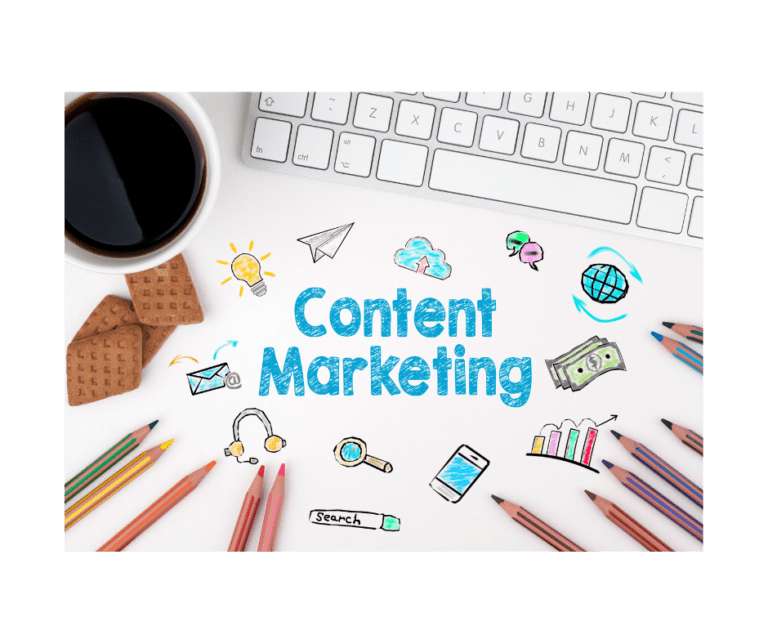
Content Marketing
Content marketing is a vital component of any successful digital marketing strategy, and for your digital marketing agency, it’s essential to not only understand but also effectively implement and communicate its value to potential clients. Here’s an overview of how content marketing can be leveraged within your agency:
Understanding Content Marketing
Content Marketing is the strategic approach of creating and distributing valuable, relevant, and consistent content to attract and retain a clearly defined audience, ultimately driving profitable customer action. Unlike traditional advertising, which directly promotes products or services, content marketing focuses on providing useful information that addresses the pain points and interests of the target audience.
Benefits of Content Marketing
Increased Visibility and Brand Awareness: Quality content improves search engine rankings, making your clients’ websites more visible to potential customers searching for relevant topics.
Building Trust and Authority: Regularly publishing informative and insightful content helps establish your clients as industry leaders, fostering trust among their audience.
Audience Engagement: Engaging content encourages interaction, sharing, and discussion, which helps build a community around your clients’ brands.
Lead Generation: Content can guide potential customers through the sales funnel, providing the information they need at each stage to move closer to making a purchase.
Cost-Effective Marketing: Compared to traditional marketing, content marketing often requires a lower investment while yielding long-term results.
Key Components of Content Marketing
Content Strategy: Develop a clear content strategy that aligns with your clients’ business goals. This includes defining the target audience, setting objectives, and planning content types and distribution channels.
Content Creation: Produce high-quality content tailored to the needs and interests of the target audience. This can include blog posts, articles, videos, infographics, ebooks, whitepapers, and more.
Content Distribution: Utilize various channels to distribute content, such as social media, email newsletters, and guest posting on relevant websites. Effective distribution ensures the content reaches and engages the intended audience.
SEO Optimization: Optimize content for search engines to improve visibility and organic traffic. This involves using relevant keywords, meta tags, and ensuring the content is user-friendly and mobile-optimized.
Analytics and Measurement: Track and analyze content performance using metrics such as page views, engagement rates, conversion rates, and social shares. Use this data to refine and improve your content marketing strategy.
Implementing Content Marketing in Your Agency
Client Consultation: Begin with a thorough consultation to understand your clients’ goals, target audience, and current content landscape. Identify gaps and opportunities for improvement.
Content Planning: Develop a detailed content plan, including a content calendar that outlines what will be published, when, and on which platforms. Ensure the plan aligns with the clients’ overall marketing strategy.
Content Production: Leverage your agency’s expertise to create high-quality content. This might involve your in-house team or collaborating with freelance writers, designers, and videographers.
Promotion and Distribution: Implement a multi-channel promotion strategy to ensure the content reaches the right audience. Use paid advertising, social media marketing, and email campaigns to amplify content reach.
Continuous Improvement: Regularly review content performance and gather feedback. Use insights to continuously refine the content strategy, ensuring it remains effective and aligned with changing market trends and audience preferences.
Showcasing Your Agency’s Expertise
To attract clients, demonstrate your agency’s expertise in content marketing by:
- Case Studies: Share detailed case studies showcasing successful content marketing campaigns you’ve managed, highlighting the strategies used and the results achieved.
- Testimonials: Collect and display testimonials from satisfied clients who have benefited from your content marketing services.
- Educational Content: Publish your own content, such as blog posts, whitepapers, and webinars, offering valuable insights into content marketing best practices and trends. This not only showcases your knowledge but also attracts potential clients seeking expertise.
- Workshops and Seminars: Host workshops and seminars to educate potential clients about the benefits of content marketing and how your agency can help them achieve their goals.
Conclusion
By implementing a robust content marketing strategy, your digital marketing agency can significantly enhance its service offerings, delivering measurable results for your clients. Focus on creating valuable, engaging, and optimized content that addresses the needs of your clients’ target audiences, and continuously refine your strategies based on performance data to stay ahead in the competitive digital marketing landscape.
